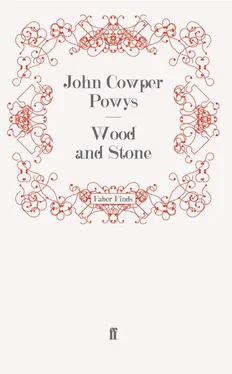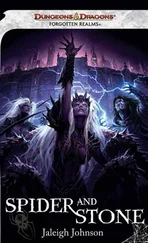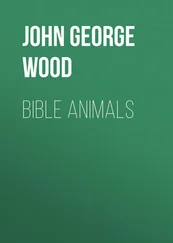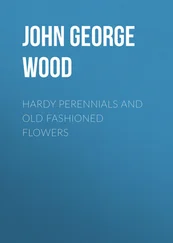From the thought of his girls, Luke’s mind wandered back to the thought of what the constant presence of his brother as a background to his life had really meant. Even as he sat there, gazing so hopelessly at the image on the bed, he found himself on the point of resolving to explain all these matters to James and hear his opinion upon them.
By degrees, as the dawn approached, the two blank holes into cavernous darkness which the windows of the chamber had become, changed their character. A faint whitish-blue transparency grew visible within their enclosing frames, and something ghostly and phantom-like, the stealthy invasion of a new presence, glided into the room.
This palpable presence, the frail embryo of a new day, gave to the yellow candle-flames a queer sickly pallor and intensified to a chalky opacity the dead whiteness of the sheet, and of the folded hands resting upon it. It was with the sound of the first twittering birds, and the first cock-crow, that the ice-cold spear of desolation pierced deepest of all into Luke’s heart. He shivered, and blew out the candles.
A curious feeling possessed him that, in a sudden ghastly withdrawal, that other James, the James he had been turning to all night in tacit familiar appeal, had receded far out of his reach. From indistinct horizons his muffled voice moaned for a while, like the wind in the willows of Lethe, and then died away in a thin long-drawn whisper. Luke was alone; alone with his loss and alone with the image of death.
He moved to the window and looked out. Streaks of watery gold were already visible above the eastern uplands, and a filmy sea of white mist swayed and fluttered over the fields.
All these things together, the white mist, the white walls of the room, the white light, the white covering on the body, seemed to fall upon the worn-out watcher with a weight of irresistible finality. James was dead—“gone to his death-bed;—he never would come again!”
Turning his back wearily upon those golden sky-streaks, that on any other occasion would have thrilled him with their magical promise, Luke observed the dead bodies of no less than five large moths grouped around the extinct candles. Two of them were “currant-moths,” one a “yellow under-wing,” and the others beyond his entomological knowledge. This was the only holocaust, then, allowed to the dead man. Five moths! And the Milky Way had looked down upon their destruction with the same placidity as upon the cause of the vigil that slew them.
Luke felt a sudden desire to escape from this room, every object of which bore now, in dimly obscure letters, the appalling handwriting of the ministers of fate. He crept on tiptoe to the door and opened it stealthily. Making a mute valedictory gesture towards the bed, he shut the door behind him and slipped down the little creaking stairs.
He entered his landlady’s kitchen, and as silently as he could collected a bundle of sticks and lit the fire. The crackling flames produced an infinitesimal lifting of the cloud which weighed upon his spirit. He warmed his hands before the blaze. From some remote depth within him, there began to awake once more the old inexpugnable zest for life.
Piling some pieces of coal upon the burning wood and drawing the kettle to the edge of the hob, he left the kitchen; and crossing the little hall, impregnated with a thin sickly odor of lamp-oil, he shot back the blots of the house-door, and let himself out into the morning air.
A flock of starlings fluttered away over the meadow, and from the mist-wreathed recesses of Nevilton House gardens came the weird defiant scream of a peacock.
He glanced furtively, as if such a glance were almost sacrilegious, at the open windows of his brother’s room; and then pushing open the garden-gate emerged into the dew-drenched field. He could not bring himself to leave the neighbourhood of the house, but began pacing up and down the length of the meadow, from the hedge adjacent to the railway, to that elm-shadowed corner, where not so many weeks ago he had distracted himself with Annie and Phyllis. He continued this reiterated pacing, — his tired brain giving itself up to the monotony of a heart-easing movement, — until the sun had risen quite high above the horizon. The great fiery orb pleased him well, in its strong indifference, as with its lavish beams it dissipated the mist and touched the tree-trunks with ruddy colour.
“Ha!” he cried aloud, “the sun is the only God! To the sun must all flesh turn, if it would live and not die!”
Half ashamed of this revival of his spirits he obeyed the beckoning gestures of the station-master’s wife, who now appeared at the door.
The good woman’s sympathy, though not of the silent or tactful order, was well adapted to prevent the immediate return of any hopeless grief.
“’Tis good it were a Saturday when the Lord took him,” she said, pouring out for her lodger a steaming cup of excellent tea, and buttering a slice of bread; “he’ll have Sunday to lie up in. It be best of all luck for these poor stiff ones, to have church bells rung over ’em.”
“I pray Heaven I shan’t have any visitors today,” remarked Luke, sipping his tea and stretching out his feet to the friendly blaze.
“That ye’ll be sure to have!” answered the woman; “and the sooner ye puts on a decent black coat, and washes and brushes up a bit, the better ’twill be for all concerned. I always tells my old man that when he do fall stiff, like what your brother be, I shall put on my black silk gown and sit in the front parlour with a bottle of elder wine, ready for all sorts and conditions.”
Luke rose, with a piece of bread-and-butter in his hand, and surveyed himself in the mirror.
“Yes, I do need a bit of tidying,” he said. “Perhaps you wouldn’t mind my shaving down here?”
Even as he spoke the young stone-carver could not help recalling those sinister stories of dead men whose beards have grown in their coffins. The landlady nodded.
“I’ll make ’ee up a bed for these ’ere days,” she said, “in Betty’s room. As for shaving and such like, please yourself, Master Luke. This house be thy house with him lying up there.”
Between nine and ten o’clock Luke’s first visitor made his appearance. This was Mr. Clavering, who showed himself neither surprised nor greatly pleased to find the bereft brother romping with the children under the station-master’s apple-trees.
“I cannot express to you the sympathy I feel,” said the clergyman, “with your grief under this great blow. Words on these occasions are of little avail. But I trust you know where to turn for true consolation.”
“Thank you, sir,” replied Luke, who, though carefully shaved and washed, still wore the light grey flannel suit of his Saturday’s excursion.
“Give Mr. Clavering an apple, Lizzie!” he added.
“I wouldn’t for a moment,” continued the Reverend Hugh, “intrude upon you with any impertinent questions. But I could not help wondering as I walked through the village how this tragedy would affect you. I prayed it might,”—here he laid a grave and pastoral hand on the young man’s arm, — “I prayed it might give you a different attitude to those high matters which we have at various times discussed together. Am I right in my hope, Luke?”
Never had the superb tactlessness of Nevilton’s vicar betrayed him more deplorably.
“Death is death, Mr. Clavering,” replied the stone-carver, lifting up the youngest of the children and placing her astride on an apple-branch. “It’s about the worst blow fate’s ever dealt me. But when it comes to any change in my ideas, — no! I can’t say that I’ve altered.”
“I understand you weren’t with him when this terrible thing happened,” said the clergyman. “They tell me he was picked up by strangers. There’ll be no need, I trust, for an inquest, or anything of that kind?”
Читать дальше












